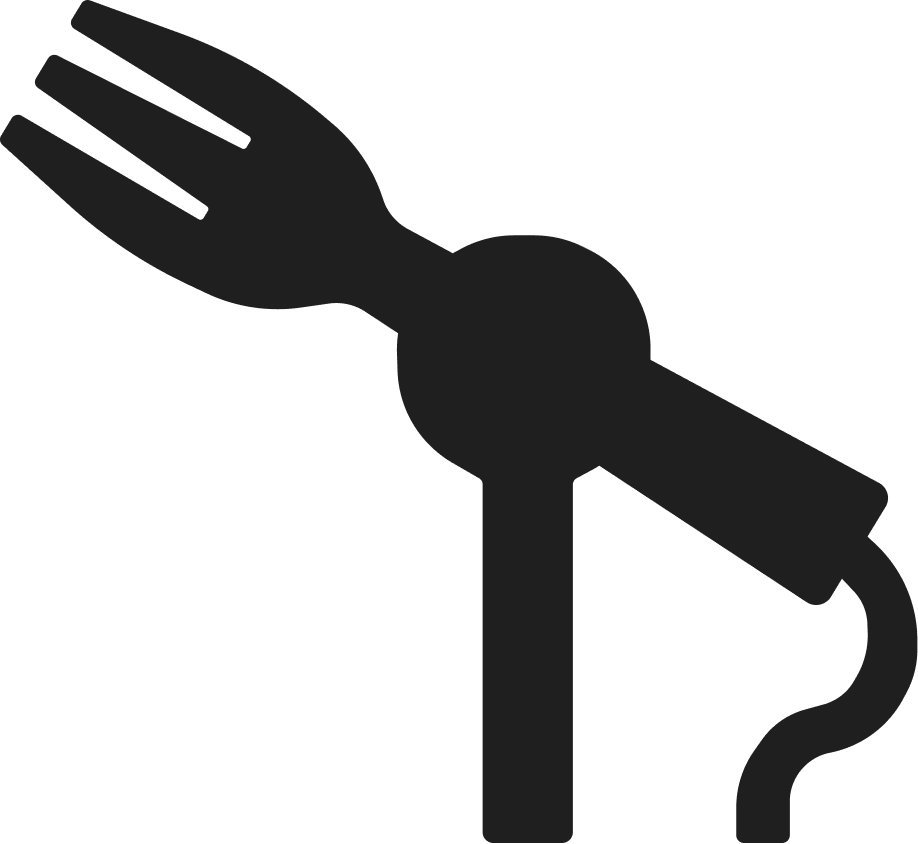Uses for Obsessives like Ben Shewry
BTS on chef Ben Shewry's new book and what it's like to lead with honesty, MAD alum Julia Soria goes from chef to publisher, and VILD MAD meets Terra Madre '24
LONG READ
The Obsessive
When Ben Shewry appeared on stage at the first MAD Symposium in 2011, most of the audience had never heard of him. He was clearly nervous, and his talk about his Melbourne restaurant Attica was at times somewhat halting. But about midway through, he showed a short film that brought the house down. It focused on him taking his young son abalone fishing and trying to impart to the six-year-old some of the same knowledge about nature and ethics that his dad had passed on to him. With its beautiful imagery set to a haunting Yo La Tengo song called Green Arrow, the film touched a lot of people in the audience, and it made a powerful case for the responsibility that chefs have to do the right thing. So it was somewhat ironic that when, in 2013, Ben finally got around to asking the band, which he worshipped, if he could use Green Arrow in the film, he failed to mention that, um, actually, he already had.
Not everyone would admit that, especially not in writing. But in his new book Uses for Obsession, Ben not only comes clean about the shame and guilt he felt when his musical idols caught him out but displays again and again an honesty that is rare in our times. As some who is, as he puts it, “an acute dissector of bullshit,” he tells the truth about some of the biggest names in the industry, about the emptiness and distortions of ratings and awards, and about the ignorance of many reviews. But more than anything, Ben tells the truth about himself. Because as much as Uses for Obsession is a memoir, it’s also a treatise on leadership, and for Shewry, there is no leadership without honesty.
Born in New Zealand, Ben grew up with a deep love of nature and a burning desire to cook. His career started humbly enough– “I made nachos and cleaned up the vomit of people drunk on beer in a student bar,” he says. “And I worked in huge hotels where nobody gave a shit about the cooking”—before moving on to more ambitious places and, in 2005, taking over the kitchen at Attica. After some rough years at the beginning, the restaurant began thriving and ever since has been one of Australia’s most creative and acclaimed restaurants.
As a memoir, Uses for Obsession isn’t so much about that chronology though. Instead, Ben uses vivid and often funny (there are stolen soaps and a lot of lasagne) episodes to tell the messy, imperfect story of becoming himself. Creatively, he has gone from being a kid who felt suffocated by what he learned in culinary school but was unable to articulate an alternative, to someone who acquired his first culinary obsession when he encountered the Thai cooking of David Thompson, to a confident chef who has learned to listen to and express his own voice.
The journey has also entailed learning quite a bit about how to run a business and treat the people working alongside him. When Ben first took over Attica, he had no customers, accounts that were teetering towards bankruptcy, and no clear sense of how to lead others except what he had seen in other kitchens. “I was a horrible manager,” he admits.
But he knew he wanted to do better. “You can loosely put leaders into a couple of subsets. There’s the sort of narcissistic, egomaniac leader that we hear about with much too much frequency. And there’s the sort of leader that I admire, which is the leader who is more like a farmer, in that they cultivate things that will grow well into the future.”
He aimed for the latter, and through a process of trial and error, gradually developed a leadership style that today, makes him proud. “I always hated the idea that high performance and a happy staff were mutually exclusive,” he says. “If you rule a kitchen of fear, then I’m sorry, but you're just not going to achieve the level of success that you could have. Even if your only measure of success is what’s on the plate.”
In fact, he believes fear kills creativity, and that the whole notion that restaurants should strive for perfection is flawed. “Perfection is a fucking myth, it’s impossible, and if you think that you've got it, or that you’re getting close, your arrogance will absolutely guarantee that you get nowhere near it. And I say that as somebody who is totally, utterly obsessive.”
Instead of fear and anger, he prefers to lead with the same sort of kindness that hospitality people regularly extend toward their guests. To that end, he invented a weekly gathering called Staff Speeches that was born of a desire to heal the classic tension between front and back of house, and to generate empathy and consideration among his team. It’s a simple idea: each Wednesday at 4 pm, the entire staff gathers and listens while one of their own tells about themself. The speeches have ranged from extremely serious–stories about political persecution, sexual harassment, mental illness–to extremely not (one staff person regularly uses his time to express his love for the local football club). But the impact of giving everyone a voice has been massive, and a major part of how Attica changed its culture.
To make those changes, and to more fully live his values as both the leader of Attica and as just a decent human being, he’s had to overcome his own fear. In the book, he tells a devastating story about the time, when working as sous-chef for the New Zealand Governor-General, that he witnessed Prince Philip (yes, that Prince Philip, the husband of Queen Elizabeth) make a racist remark in front of Maori staff members and failed to say anything. He is also still pained by another incident that occurred years later, during a group trip to Japan that was part of an event series called Cook It Raw. A dozen or so prominent chefs from all over were there, along with Anthony Bourdain, who was shooting the journey for one of his shows. At one point, the group stopped for lunch in a fishing village and entered a sushi bar. There, live fish were flapping around on the counter, slowly suffocating. “I was like, for fuck’s sake, am I the only one feeling so angry?” Ben recalls. “I actually had to leave the restaurant. But I was in my very early 30s and I had been invited on this trip. I didn’t have the courage to speak out and just say ‘This is fucking ghastly.’”
The path to becoming more courageous has not been easy, and there have been serious bouts of depression and self-doubt along the way. One of the worst happened during the pandemic, when a lockdown that started around his 43rd birthday and would continue over 280 days, plunged him into panic. Desperate for ways to keep his staff on payroll and stay in business, he reluctantly agreed to his partner Kylie’s suggestion they start doing takeaway. They launched a scheme called Attica at Home that not only featured a refined version of the lasagne bolognese that Ben grew up with (it was the only pasta that his father considered “real food,”) but had him both cooking it —sometimes during a lonely 11 pm-9 am shift that was the only way to keep up with demand—and driving frantically around Melbourne to deliver it.
In the end, Attica at Home was a success, and lessons like that have brought him a lot closer to fearlessness. So too did one that happened at another Symposium, this one in 2018, when, in a talk memorably titled “No More Cock Rock,” Ben, recognizing his own privilege, spoke out against sexism in the industry and called on his fellow male chefs to stop it. When it was over, he says, a lot of men in the audience came up to him to ask for advice on how they could do better. “As someone who sort of never fit into the male, macho kitchen culture and was punished repeatedly throughout his career for being what other people said was soft or a pussy,” he says, “It was the very first time I felt appreciated in that way.”
In many ways, Uses for Obsession represents a new phase in learning to be fearless. There are some choice words in the book for colleagues who appear to have lost the thread chasing stars and rankings. He calls out organizations that reward only a very narrow definition of quality without considering its impact on the environment or the people doing the work. And reviewers, who cynically wield the power to close a restaurant without acquiring the knowledge necessary for doing their jobs well, come in for some especially pointed criticism. He knows that these sections will raise hackles (in the Australian press, they already have), but they were important to for him to say nonetheless.
At different times in the writing process, he and Kylie have feared what that kind of radical honesty could mean for the restaurant. “We thought about the retribution and the attacks that may follow,” he says. “What we landed on was that, through this, we would find out whether or not we can run the company by telling the truth. And if we couldn’t, then we would find that it was no longer worth running it.”
So, in the ongoing process of becoming Ben Shewry, he has reached a new stage. “I just got so fed up with the bullshit and lack of meaning,” he says of what spurred him, ever obsessive, to fit the writing in at 5.30 every morning before he started in the kitchen. “And you realize: if you want to live a real, full life, at some point you’ve got to lay it on the line.”
ACADEMY ALUMNI
5 Questions with Julia Soria
Julia Soria, a chef and MAD alum with an impressive culinary career, has recently taken on a new challenge: launching her own bilingual magazine, Figo. After globetrotting and working alongside the best —and in a few 50 Best— she felt inspired to create a new platform highlighting her unsung heroes of the food industry, from farmers to fermenters. We caught up with Julia to learn more about Figo, fostering meaningful conversations around food suppliers, and where you might just see a wee bit of MAD in Figo’s pages.
First of all, congratulations on the magazine launch! Tell us what inspired Figo and how it has been to go from chef to publisher.
Well, I'm trying to balance both! My days are in the kitchen while Figo is on the side as my passion project. But it was actually my everyday life that inspired Figo—all of the incredible people and projects I've encountered throughout my career. All the moments when I wished others could meet the same inspiring people I've had the privilege to meet or work with. I think it's so powerful to share their stories and fuel meaningful conversations around food systems. Also, coming from Argentina, I know there are many great stories that people are missing, either because they can't speak English or they can't speak Spanish. That's why we publish Figo in both languages—we're trying to break that barrier and foster more connection.
WHAT WE’VE BEEN UP TO
MAD x Terra Madre ‘24
Late last month, MAD’s Mikkel-Lau Mikkelsen joined food revolutionaries from around the globe at Terra Madre for a series of talks on foraging. Mikkel-Lau spoke about MAD’s foraging program VILD MAD and, along with speakers from Iceland to Chile, discussed how harvesting wild foods can further sustainable practices, and enhance biodiversity and food security.
The debate explored the significance of wild foods, foraging and food culture, and sustainable foraging methods—all highlighting how local food systems are vital to feeding our future. It also raised thought-provoking questions, such as: Could picking wild plants be an act of environmental stewardship?
Terra Madre Salone del Gusto, held biennially in Turin, is a massive gathering of food producers, activists, and Indigenous peoples from across the globe, united in their vision of a world where food is central to building healthy communities and a thriving planet.







